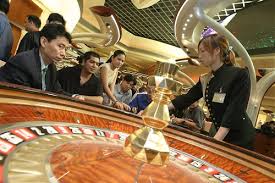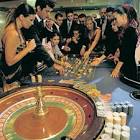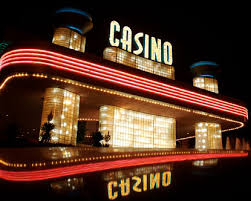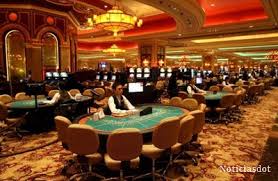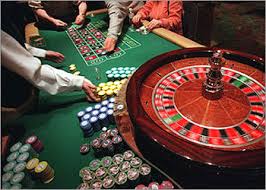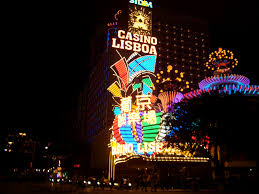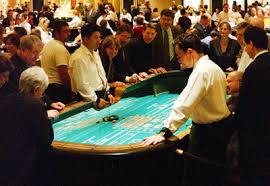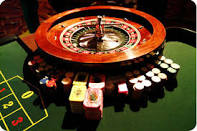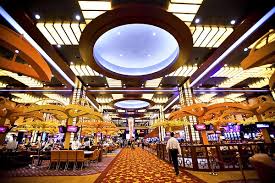Nobody wakes up one day and decides to become a gambling addict. Gambling usually begins as a recreational activity - it's a way to spend time with friends while enjoying the game and the excitement of the chance to win a few bucks. Recreational gamblers generally stick to a time and money budget. When they reach their limit, they stop and move on to the next activity.
Not so for the pathological gambler. Gambling addicts are not really all that interested in winning or losing. Their main goal is to stay in action as long as possible. That action increases the levels of certain chemicals in their brain, primarily dopamine and adrenaline, and those chemicals cause the gambler to feel happy and excited. These are the same brain chemicals that are activated by cocaine use. Using modern imaging tools, we see that brain scans of gamblers in action look practically identical to brains that are high on cocaine. Winning is good because it provides money to extend the gambling action. Money represents nothing more than the fuel to keep the gambling going and the action keeps whatever painful thoughts and feelings that the gambler is seeking to escape, at bay.
There are usually several distinct phases of gambling addiction: the winning phase, the losing phase and the desperation phase. As the disease progresses from winning into losing and desperation, gamblers often turn to criminal activity to fund their addiction. They will lie and steal from those close to them - family, friends, husbands, wives, parents and children. Some gamblers ultimately turn to suicide. In fact, gamblers attempt suicide at a rate that far exceeds that of almost any other clinical population. Forty-eight percent of gamblers in treatment in Oregon have had suicidal thoughts and nine percent have made suicide attempts.
All of this occurs despite the fact that gamblers are generally bright, creative people. Many gamblers are educated and professionally accomplished. In this sense, gamblers' behavior is said to be ego-dystonic, which means that it is incongruent with their true nature. Behaving in ways that run so counter to who they really are, gamblers generate a great deal of internal distress as they violate their own personal values time and time again. As they progress in the illness, they become more and more disconnected from loved ones, their professional lives and themselves. Their dishonesty is not only toward others, but also toward themselves.
Many people believe that if a gambler is losing excessive amounts of time and money gambling, they should just stop. The fact is, gambling addicts cannot "just stop" any more than an alcoholic or drug addict can stop using their drug of choice. Gambling addiction causes changes in the gambler's brain in ways that require treatment and recovery to arrest the addiction.
When gambling stops (usually when there's no more money), the gambler crashes - financially, physically, mentally, emotionally and spiritually. This crash is a combination of the gambler's realization of the money and time lost, and the decrease in dopamine levels in the brain that can lead to desperate thoughts and behavior. This is also when gamblers may realize that they need professional help.
Recovery from gambling addiction begins with the gambler making an honest assessment of his or her situation and deciding that they want to stop gambling. The gambler must initiate abstinence and put barriers in place to prevent access to money. Family members and friends may be enlisted to help the gambler manage finances and they must understand that the gambler is incapable of handling money responsibly at this time.
Once the gambler has some time away from gambling and their system begins to regain equilibrium, the confusion and mental fog created by gambling will begin to ease. Therapy can then address the issues that led them to gambling in the first place. For many, gambling is not their first addiction. Often gamblers have had previous problems with alcohol and/or other drugs, or compulsive shopping, spending, sex or eating. It is important to note that until the core issues are addressed and resolved, individuals disposed to addiction will simply trade one addiction for another. It is an attempt to mask the pain in their lives. True recovery is achieved by doing the hard work to understand and make peace with life's difficulties.
Recovery from gambling addiction is a marathon, not a sprint. It requires effort, diligence and lifestyle changes that keep one healthy and safe from the cravings to gamble that will most surely arise. Exercise, sleeping well, eating a healthy diet and maintaining nurturing relationships are all important parts of healthy recovery.
The ready availability of gambling has made it possible for gambling addiction to run rampant. In Oregon, gambling is as close as the corner deli. Gambling addiction destroys lives and families without bias - it affects men and women, young and old, rich and poor. Like all addictions, it is a disease. But there is hope. When addicts and families seek and engage professional help, true recovery is possible.
